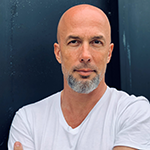APPLY FOR ADMISSION
FIRST YEAR MEISNER ACTING PROGRAM

Begins January 7th, 2025

Call To Schedule an Interview
(917) 794-3878
Uncovering the Meisner Acting Technique
Are you an aspiring actor looking for a full-proof technique to hone your craft? You’re in the right place!
Discover the Meisner Technique, a renowned acting method that has shaped the careers of numerous successful actors.
In this blog post, we will explore the origins of the technique, its key elements, and its impact on actors. Get ready to embark on a journey towards authentic and captivating performances.
Short summary
- Unlock your potential as an actor with Meisner Acting, a technique developed by Sanford Meisner to train professional actors..
- Key elements include the repetition exercise, independent activity, andemotional preparation.
- Discover the power of this approach through various schools, studios, books and online resources for successful acting careers!
The Origins of Meisner Technique
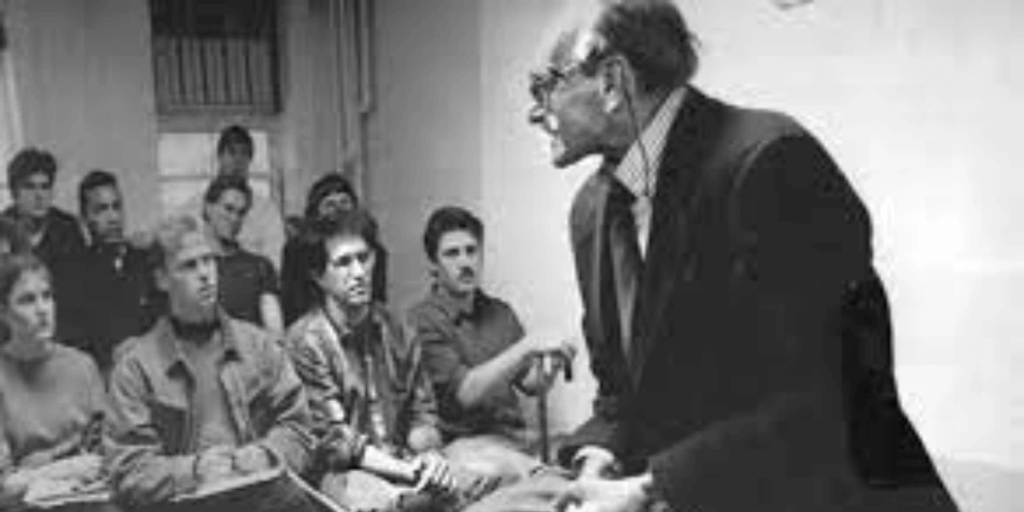
Sanford Meisner, a New York actor, had the privilege of being a member of The Group Theater alongside renowned figures, such as Lee Strasberg, Stella Adler, Elia Kazan, and Cliford Odets
Inspired by his experiences, Meisner developed the Meisner Technique in the 1930’s as a system to help actors consistently create organic, fully realized human behavior in the imaginary world.
This technique is celebrated throughout the acting world for its ability to produce well-trained actors who possess depth, range, and empathy.
The Meisner Technique quickly gained a reputation among actors and filmmakers alike. Famous Meisner actors are praised for their ability to create vivid, emotionally rich characters on both stage and screen.
Key Elements of Meisner Acting

The First Year of the Meisner Technique focuses on three main components—the repetition exercise, the independent activity, and emotional preparation—to help actors remain present and spontaneous..
In the following subsections, we will delve deeper into each of these essential aspects of the Meisner Technique.
Emotional preparation
Emotional preparation is a crucial part of the actor’s craft, and an essential element in the first year of the Meisner Technique. Emotional preparation is what an actor does off-stage or off-camera to relate emotionally to the previous circumstance of a scene. It is self-induced emotion.
To achieve this emotional depth, Meisner believed that actors could take their ability to daydream and fantasize and harness that to their craft. The imagination is the most important part of an artists instrument, and it can absolutely be trained and developed. The more vivid and graphic the daydream, the more rich the emotional life it produces. It’s an incredibly healthy, and creative way to work.
Meisner understood that the job of the actor is to create behavior. Major characters and complicated roles also require actors who possess emotional accessibility. First-Year Meisner training develops emotional fluidity in the actor. It’s important to understand that the quality of emotion is more important than quantity.
Untrained actors mistakenly believe that good actors need to emote. This is not true. Emotion must be fluid, it needs to ebb and flow in the actor like water being poured between two glasses. Learning not to work for emotion, not to try and squeeze it out, or keep it going, or big lessons that emotional preparation addresses.
This emotional preparation process not only deepens the actor’s connection to their character but also enables them to respond with depth and vulnerability. When an actor is emotionally connected to the previous circumstance, the audience will immediately give over to the reality of the scene. Actors who lack this kind of emotional connection will not truly illuminate what the playwright or screenwriter has put on the page. The audience will not have an experience, which is the whole point of storytelling.
Repetition exercises
The Repetition Exercise is the beginning foundational component of the Meisner Technique. This exercise train actors to get out of their heads, get their attention onto the other person, and respond truthfully and spontaneously from unanticipated moment to unanticipated moment. This fundamental skill lays the groundwork for an actor to get out of their head, impulsive, alive, and malleable to the nuances of how the other actor is treating them. This is the floorboard for creating the flawless illusion of life.
The repetition exercise, a powerful training tool in the Meisner Technique, begins with two actors standing across from each other. One actor starts the repetition with a spontaneous impulse, a point of view about something they see in the other.
Holding onto the continuity of the repetition, and treating it like a reality, the students begin to learn how to act before they think, how to start sensitizing their instrument, how to be direct and how to stand up for themselves. This process begins to help actors get comfortable with conflict, a core part of acting.
Actors need to be comfortable with anger, both their own, and someone else’s. Depending on childhood and parenting, our relationship with anger can be very unsettling. In First Year Meisner, this simple repetition exercise evolves into a deep and sophisticated improvisation that deals not just with conflict, but with open-hearted intimacy, which is another key element in acting.
Just think about how many times in your life you have fully expressed yourself or have allowed yourself to be fully seen by another. Not often. But the actor must work in this way all the time. This takes training, and the Meisner Technique is the greatest way to achieve this.
As the first-year Meisner Repetition Exercise continues to evolve, actors learn how to craft a previous circumstance, an acting relationship, and shared circumstances. Learning how to do the proper homework on these is what separates the really good actor from the hack.
The untrained actor does not know how to work, they slap things together, with no understanding of how to approach a script. First Year Meisner training gives the actor a clear process, a consistent way of working that will support them for their entire career.
Independent activity
A fundamental component of the Meisner Technique is the independent activity. Acting is the ability to do truthfully under an imaginary circumstance, and the independent activity, which is introduced in the first few weeks of the training, starts to instill this ability.
Crafting is a core part of an actor’s skill set, and it requires the ability to do so simply, specifically, and personally. If the crafting is solid, easily stated, and vivid, then the byproduct will be fully realized human behavior.
The independent activity is a constant throughout the first year of the Meisner Technique. Students are exercising their imagination, and discovering the life issues that have deep meaning for them. Learning how to craft around those in an imaginative way is a healthy and creative approach to this art form.
The improvisation exercise in the First Year of Meisner Acting teach the student how to do homework, leave themselves alone, put their attention on the other person or what they are doing, and go from unanticipated moment to unanticipated moment. This exercise trains actors to consistently create organic, vivid, fully realized human behavior.
The Impact of Meisner Training
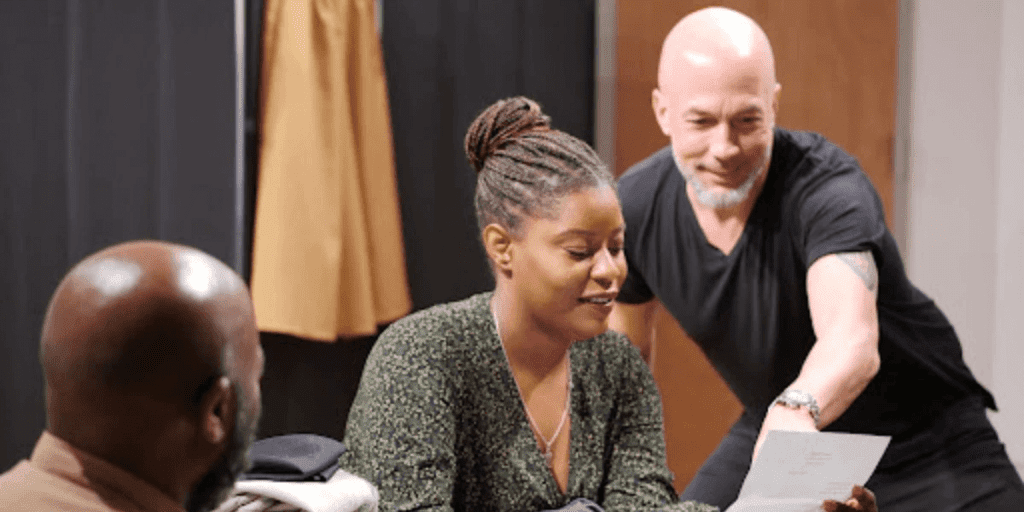
Actors who study the Meisner Technique are spontaneous, possess emotional depth, and have the ability to listen and respond personally in every moment. Most people can count on one hand the searing experiences of their life. Those moments of profound grief, searing shame, crippling heartbreak, delirious joy, or murderous rage are few and far between in life.
The actor must live through those eight shows a week, or 15-20 takes on a set. That requires a rock-solid craft and well-developed physical instrument. This is the impact of Meisner training for the serious actor.
Meisner Training must be taught in a serious, professional acting class to be done properly. The classroom setting teaches the student not just by working, but also by watching their classmates. The notes given to other students will also provide breakthroughs for everyone else.
When taught properly by a master teacher, the Meisner Technique will develop an actor who is fully present, out of their heads, on their spontaneous impulses, working from a deeply personal and vulnerable place. This is artistry.
Overall, Meisner Training can be a solid process for actors, allowing them to access rich emotion, and deliver performances they never imagined possible. The impact of this training can be seen in the successful careers of many Meisner-trained actors, who often bring unique behavior to their performances.
Global Influence of the Meisner Technique
The Meisner Technique’s profound impact extends beyond Hollywood and Broadway. Its principles have resonated with actors and acting schools across the globe, influencing various cultural acting traditions. From European theater to Asian cinema, the Meisner Technique has been adapted and embraced, reflecting its universal appeal.
Acting schools in countries like the United Kingdom, Australia, and Canada have incorporated Meisner’s teachings into their curriculums, recognizing the value of emotional authenticity and spontaneity in performance. The technique’s focus on organic human behavior transcends language and cultural barriers, making it a versatile technique for actors worldwide.
The global influence of the Meisner Technique underscores its enduring relevance and effectiveness in the world of acting. It stands as a testament to Sanford Meisner’s vision and his lasting contribution to the art of acting.
The Meisner Technique: A Focus on the “Reality of Doing”
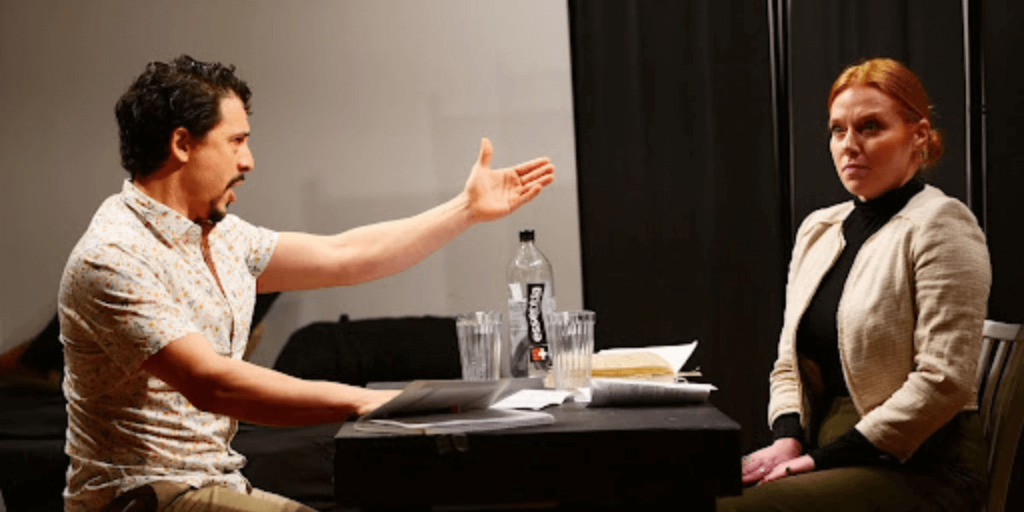
The reality of doing for the actor is comparable to a child learning how to crawl. It is fundamental to the art form. Acting is the ability to do truthfully under an imaginary circumstance. Bad actors indicate, they perform, they “act like” they’re doing something. It’s amateurish and unwatchable. Good actors truthfully do, but to do this on a stage or a set with lights, cameras, immense pressure, is a big challenge. It’s harder than you may think. This is what Meisner’s training hel[s make second nature in the actor.
In traditional acting methods, actors often indicate actions, focusing on results rather than the process of truthfully doing.. The Meisner Technique challenges this approach by insisting that actors fully engage in the task at hand, whether it’s peeling an orange, painting a picture, or tying a knot.
This focus on the “Reality of Doing” serves several critical functions in the actor’s development:
Presence
Placement of concentration for an actor is a fundamental skill. An actor never wants to be in their head, with the attention on themselves. Once an actor begins to truthfully do something for itself, they begin to free up their instrument. Thats the goal. An actor is either connected to what they are doing, or the other person. Once that becomes second nature then spontaneity is possible.
Emotional connection
Engaging in a real activity, something deeply personal, will often trigger a genuine emotional response. This is a result of simple, specific, and personal crafting, which allows for a profound connection to the character and circumstances of the scene.
Physical engagement
The job of the actor is to create behavior. Major roles, complicated parts will require an actor to be vivid. You cannot be pedestrian and be a first-rate actor. True dimension and size, real range is a direct result of the actors ability to be truthful and imaginative in the reality of doing.
Distraction from self-consciousness
A big problem for actors is being in their head, focused on themselves, watching from above so to speak. Putting your attention on the other person or what you are doing will get the actor back in the moment, present, and engaged in the reality of doing. This is one of the important fundamentals that First Year Meisner will accomplish for the actor.
Creation of subtext
Acting is essentially a subtext exercise. What a person says and what a person means can be two totally different things. In life, if you ask your partner how you look in this new outfit, and the response is “You look great”, you are not responding to the words. You are responding to the meaning of what was just said. Acting is no different. What makes a performance alive and vital every night or every take, is the ability for the actor to work off subtext. A good actor is malleable to the nuance of the moments. This is core part of the Meisner Technique.
When an actor is fully present and capable of working off another actor in every moment, the scene will come to life, it will possess a vitality, and the sense that this is happening for the first time. Actors that cannot work this way will just say their lines, with no connection to what is happening in the moments, unable to really respond to how they are being treated. Its the worst kind of acting.
A skilled actor can breath life into what are essentially dead words on a page. A Meisner trained actor is fully present, listening and responding in every moment, alerted to subtext, and capable of processing a rich emotional life.
Where to Study Meisner Acting
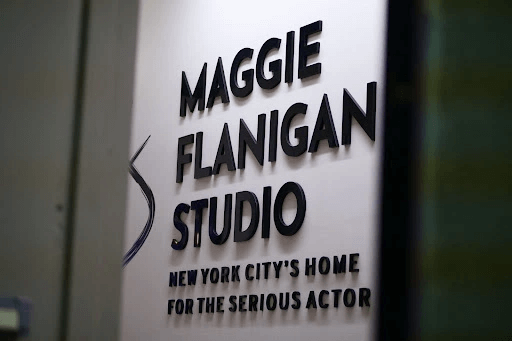
Maggie Flanigan Studio is a home for serious actors, a safe and nurturing space for those who want a long and successful acting career.. Located in the heart of New York City, our studio is dedicated to craft, work-ethic, and artistry.
What sets us apart is not only our unwavering dedication to Sanford Meisner’s original vision, but to what it means to truly be a first rate artist. Led by Artistic Director and Master Teacher Charlie Sandlan, the Maggie Flanigan Studio is not a factory.
We don’t throw students into classrooms run by frustrated actors pulling out notes from classes they took ten years ago. Here you will train with Charlie, a master teacher who has spent the last 30 years dedicated to the Meisner Technique. All of our classes, from Voice, Movement, Theater History, Film History, Cold Reading and Combat are curated so that are students enter the professional world fully trained.
Our programs are tailored to meet the unique needs of each actor, providing a personalized journey through the repetition exercise, independent activity, and emotional preparation of First Year Meisner.
Become a Serious Actor
Maggie Flanigan Studio offers comprehensive training in the Meisner Technique, a powerful method that has shaped the careers of renowned actors. Whether you’re a beginner or an experienced performer, our classes, workshops, and online resources provide the tools you need to excel.
At Maggie Flanigan Studio, we believe in nurturing talent and fostering creativity. Our expert instructors guide you through emotional preparation, repetition exercises, and improvisation, helping you connect deeply with your characters to deliver captivating performances.
Join a community that demands and celebrates authenticity, creativity, and the relentless pursuit of excellence. Explore Maggie Flanigan Studio’s offerings and begin a transformative adventure that will shape not only your acting career but your understanding of yourself as an artist.
Apply Today and tap into your true potential!
Frequently Asked Questions
What is the Meisner technique of acting?
The Meisner Technique of acting is an approach developed by theater actor and acting teacher Sanford Meisner in the 1930’s, that trains professional actors. The First Year Meisner training is rooted in the repetition exercise which evolves into a deep and sophisticated improvisation. In addition, first year utilizes the independent activity, and emotional preparation, to help actors remain fully present and in the moment.
This actor training gets the actor out of their head, onto their spontaneous impulses, connected personally to the circumstance of the scene, with emotional accessibility and vulnerability.
Is Meisner a good acting technique?
The Meisner Technique is a full-proof process that has been taught worldwide for over 90 years. It encourages actors to focus on their scene partners and react instinctively, without forcing emotion. Many legendary Broadway and Hollywood actors have used this technique, making it a great way to consistently create organic, vivid behavior.
Meisner is an incredible way to train an actor. It is a wonderful acting technique.
What are the 3 tenets of the Meisner technique?
The first year of the Meisner Technique is centered around these three main tenets:, the repetition exercise, the independent activity, and emotional preparation. These components all work together and are eventually brought to three rounds of scenes in the first year.
Emotional preparation teaches the actor how to harness their ability to daydream and fantasy to their craft. It is a healthy and creative way to work with emotion.
How does the Meisner Technique differ from Method Acting?
The Meisner Technique focuses on imagination, and The Method focuses on going literally into your past to relive the tragedies and traumas of your life in order to manipulate yourself emotionally. Meisner thought this way of acting to be unhealthy, self-indulgent, and unnecessary.
What benefits can actors gain from Meisner Training?
Not only will serious Meisner training give you craft and technique as an actor, but it will transform you as a human being. You will become more present, a better listener, more empathic and sensitized to the world, and more emotionally accessible. The work is profound and incredibly challenging. For those serious about becoming a first-rate actor and artist, the Meisner Technique will set you up for the rest your creative life.
Recent Post
STUDENT TESTIMONIALS
“I was placed in the intense reigns of Charlie Sandlan. I became a better artist, actor, friend, sibling and daughter because of the studio. Even now, I crave the studio every day. What I learned is present in my work every day. I truly believe in everything they stand for.”

“Maggie taught me that I could control my work, my acting, and to throw all of the bullshit out that I had in my head about ‘what I should be doing’ and to just listen and respond honestly, in the moment. She gave me a craft. She is, quite simply put, THE BEST.”
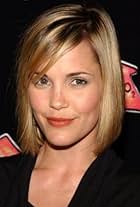
“Maggie Flanigan taught me the true meaning of artistry, passion, and professionalism. I am certain that I continue to work as an actress because of my training with Maggie. At every audition and every performance, her guiding voice is with me. It is a gift beyond measure.”

“Maggie Flanigan is uncompromising, her instincts as a teacher are razor sharp. She doesn’t miss a beat”

“Maggie Flanigan has been one of the most important people in my artistic life. I want to work with Maggie trained actors. As an actor myself, she is my first source. I do not say this lightly, if you are serious about acting, and willing to work very hard, then go to Maggie.”

“Maggie helped me find my sense of truth, an actors greatest asset. Maggie is an expert at instilling that vital ingredient, which allows an actor’s potential to become limitless. My work will forever be rooted in the clarity and honesty she helped me develop.”

“After working for ten years, I did the 2 year program, and now feel that I have the tools I need to become the actor I’ve always dreamed of being. Maggie Flanigan instilled in me a clear sense of truth and a standard of perfection. I am a better actor because of this studio.”

“As an actor, the core of what you have to rely on is your sense of truth and humanity. Maggie allowed me to discover and embrace mine. Trusting my sense of humanity and truth has given me the ability to take risks in my work and my career decisions.”

“Maggie Flanigan has the unique ability to get an actor to the essence of what is true in a moment. She creates a safe and caring environment in which to work.”

“Maggie Flanigan introduced me to my own spirit and my own sense of Truth. Her passion for teaching and ability to communicate are rare gifts to any actor looking for a technique to set his or her talent free. Maggie’s voice has been the one constant guide in my career.”



